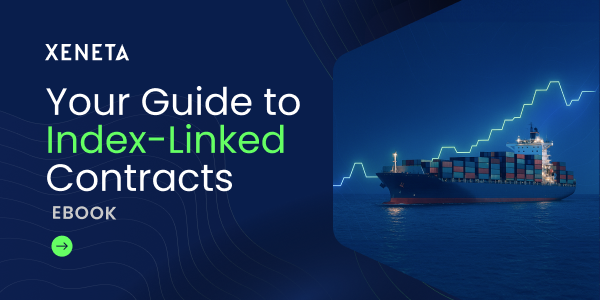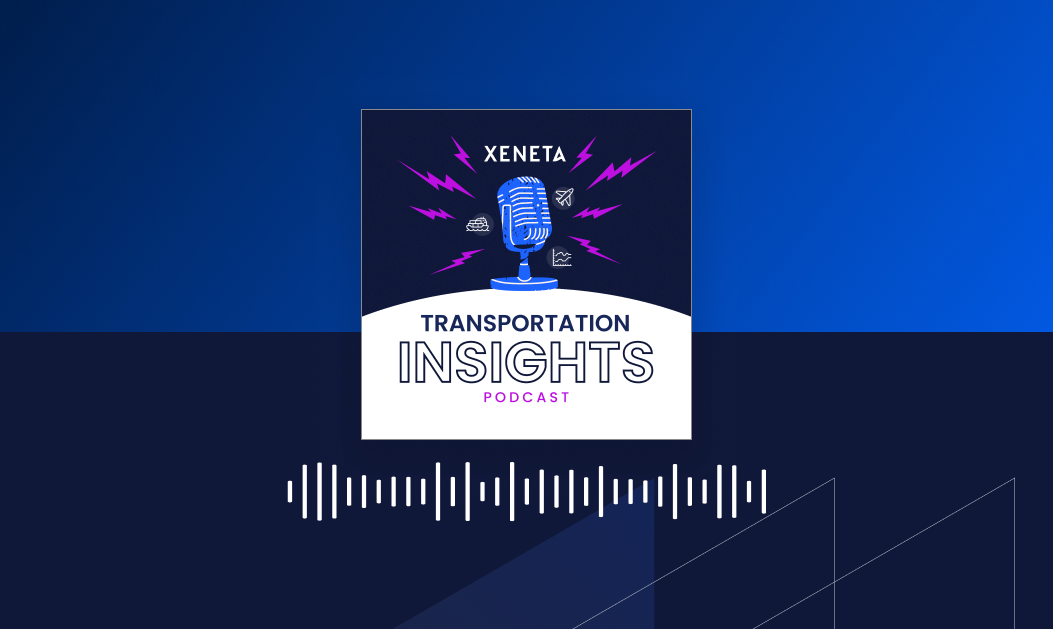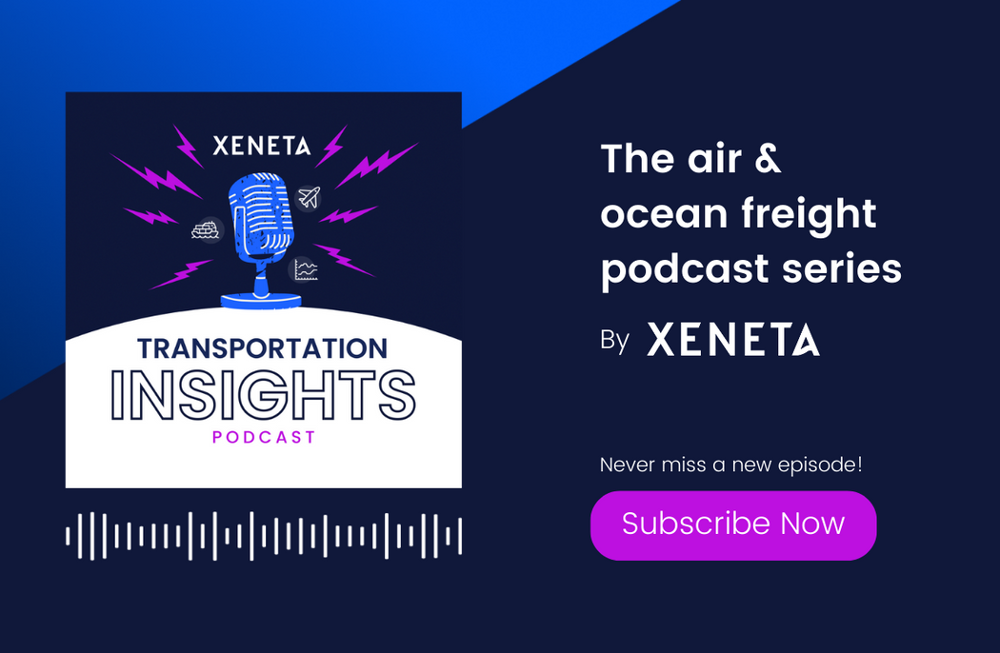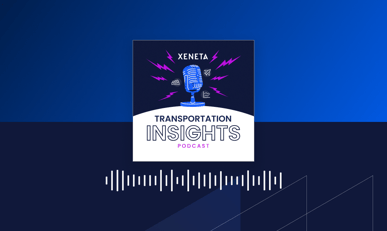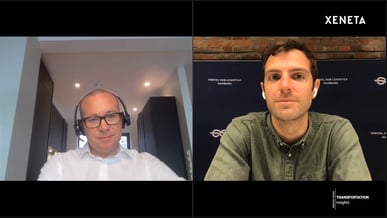Did you miss our podcast? If yes, then we've got good news for you.
We are back with a new episode of the popular 'Transportation Insights', a monthly podcast series where industry experts take the mic to discuss, debate and dive into freight transportation trends and topics impacting the ocean & air markets.
In the latest episode, Peter Sand, Chief analyst at Xeneta, discussed what digitalization means from a shipper or BCO perspective with Mr. Kris Kosmala, Partner at Click and Connect. The conversation reflected on ways in which digital solutions can be an enabler of sustainability in the supply chain industry.
Kris also talked about the future of digital advancements introduced during Covid. Will these new solutions stay around or face a similar destiny as Tradelens?
Are you more of a reader? Scroll ahead for the episode summary.
Key Highlights
-
Causality - Is this the holy grail for digitalization in container shipping?
-
The crash and burn of Tradelens
-
Sustainability in container shipping can be achieved by reducing waste, primarily by reducing the waste of 'time.'
-
How can digitalization help in reducing carbon emissions?
-
What is the future of re-shoring/near-shoring? Does it support a sustainable mindset in the supply chain?
Guest
- Kris Kosmala, Partner at Click and Connect
Mr. Kris Kosmala is a Partner at Click & Connect, a consulting company dedicated to solving business and technology in the area of international trade and logistics. He is also a strategic advisor to a number of startups addressing supply chain visibility and maritime industry operations. He focuses on business and operational transformation of supply chains and their alignment on a global scale, one that forces deep integration and collaboration between various actors facilitating global trade execution. Learn more about him here.
Host
- Peter Sand, Chief Analyst, Xeneta
Digitalization & Future of Container Shipping
Digitalization in container shipping does not need many new inventions because we already have all the pieces in place. The issue today in the industry is understanding what is needed from the shipper's perspective.
Before the pandemic, visibility was a trending issue for shippers. But it's an extensive and ambiguous term. Many companies jumped on this trend to provide solutions based on their definition of visibility. But most of those solutions were offering similar results, with only a slightly different view.
After the pandemic, reality hit when we realized none of these solutions offered complete visibility of their cargo instantaneously. Cargo was getting delayed by a couple of weeks to months or quarters. This became a huge issue for supply chains as traditional planning cycles range from 6 to 13 weeks. A quarter delay on goods that shippers depend on, either as an input material to their production or as something they're going to resell as a retailer, is bad for business.
However, now our view of visibility has evolved significantly. This is reflected in the digital solutions available today in the market.
As a shipper, you might not want visibility of your cargo in real-time, but it has more to do with causality. Causality is knowing who has possession of the containers and what decisions they are making that will affect the movement of the cargo.
It is essential as these decisions are not operational and are considered days in advance. So causality information from the carriers to the shippers can make them capable of managing their hinterland connectivity, trucks, rail operations etc.
Is causality the holy grail for digitalization in container shipping?
Will systemizing and optimizing based on the knowledge of causality make it easier for shippers to operate? Maybe or maybe not.
It won't be easy to insert any solution in the middle of the current processes. Every shipper is already innovating to optimize their processes. They use planning and optimization tools, transportation management systems, ERPs, production or retail planning tools etc.
Shippers need inputs that they can use as constraints in their plans. They also need visibility on the decisions that will affect the arrival times and frequency. This information can be useful as a constraint in their planning tools.
Real-time data gives you operational insight into what happened a few days, hours or months back. But having a forward-looking approach should be the essence of any tool looking to digitalize the container shipping business.
Sustainability & Digitalization
Kris emphasizes that sustainability should be about finding ways to reduce waste, and digitalization is the key to achieving this.
Sustainability in the shipping industry is not about costs, but is primarily about time, which costs money. When looking at the full picture, the role of digitalization is really to reduce the amount of waste.
Looking at the whole logistics business, shipping cargo from point A to point B, we need to consider the waste element, especially the 'waste of time.' It doesn't have to be a wrong financial decision, as reducing waste will automatically reduce the cost, which will positively impact the margins.
Subscribe to Transportation Insights podcast to follow more in-depth conversations with our industry leaders.
In December, Xeneta experts revealed the top 7 factors affecting the ocean freight market in 2023. Catch up on your listening today, as we will be back with a brand new episode each month.
%201.png)

